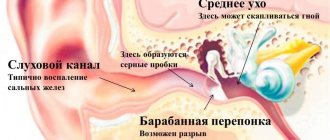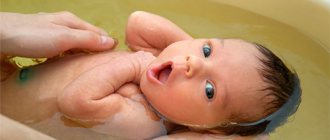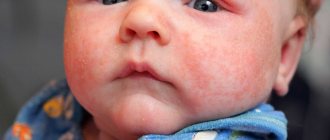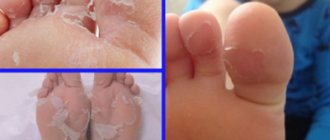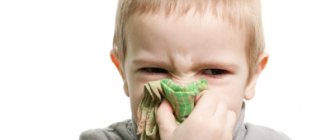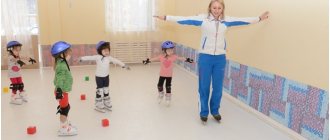Soothing baths for children
best done before bed. Collections intended for soothing baths for children are sold at any pharmacy. For example, a collection of motherwort herbs, lemon balm leaves, valerian root, and string herbs. In addition, this infusion disinfects and has a multifaceted effect on the skin and the entire body as a whole. Stimulates the release of substances, toxins and other substances harmful to the body through the skin during various allergic diseases in children, in particular with diathesis. Such baby baths can be prepared from different herbs and can be used either separately or mixed. And then the procedure will simultaneously have a calming, antiseptic, antiallergic and restorative effect. However, it is worth noting that such a magical effect can only happen if the baths are done in a course and not once.
Soothing baths for children include pine baths, pine-salt baths, baths with herbs: valerian root, sage, motherwort, mint, nettle. They have a good calming effect and improve sleep. Their total temperature is no more than 36.5C. Check with a thermometer!
Soothing bath recipes for children
Soothing herbal bath for children
. In proportions 1:1:1, mix motherwort, knotweed, sedative collection No. 2 (sold in pharmacies). 3 tbsp. the mixture of these herbs should be poured with a glass of boiling water (0.5 liters is possible), let it brew for 30-40 minutes and then strain. Dilute with 10 liters of water. The child should lie in the bath for 10-15 minutes. Repeat the procedure 12-15 times every other day.
Soothing bath for children with poor sleep and irritability
. If the baby is nervous and reacts sharply to everything, you can make a soothing bath for him with a decoction of real bedstraw - 5 tbsp. of this plant per 1 liter of boiling water. Leave for 30 minutes, dilute with 10 liters of water. Time spent in the bath is 10 minutes.
Soothing bath for children with poor sleep
. You need 50g of calendula, oregano and mint flowers, infuse in 3 liters of boiling water, then strain. The infusion is ready. All that remains is to add it to 10 liters of water. You should take this bath before bed for 10 minutes 3 times a week, for a total of 5-7 procedures.
At the slightest hint of discomfort or redness, you should immediately stop bathing; if the redness does not go away after a bath, consult a doctor.
After birth, the baby will have to go through a difficult adaptation period of several months. To avoid stress and prevent poor sleep, parents have been using relaxing baths for children for many years. Soothing baths
Newborn children are the most vulnerable to negative environmental influences, which leads to sleep disturbances, a weakened psyche and bad mood. In the first months of life, a newly born baby goes through a difficult period of adaptation and begins to explore the unfamiliar world around him.
Day after day, the baby learns more and more new and interesting things; therefore, due to an excess of emotions during the day, in the evening the child experiences a bad mood, moodiness and, as a result, a poor night’s sleep. The question arises of how to alleviate this condition of the baby, because sedative medications are not recommended at such a young age. Soothing baths for children come to the aid of parents.
Such a bath with herbs at the end of an active day will help the baby relax and relieve tension, significantly reduce the child’s nervousness, which can lead to a state of stress, and moodiness will also go away. Relaxing baths for children have been helping out many parents for decades and making the process of putting their child to sleep easier.
The benefits of such soothing baths at night are obvious. Firstly, they are easy to prepare yourself, you just need to know which herbs are needed for this. Secondly, in the process of taking such a bath, the baby improves the release of harmful substances and metabolic products through the pores of the skin, and also prevents many diseases.
When preparing soothing baths for a child, you can use one or several types of herbs, obtaining different herbal infusions. In addition, these days almost any pharmacy will be able to offer a special herbal mixture for the same purposes.
The most common herbs for preparing baths are mint, motherwort, thyme, St. John's wort, valerian, and oregano. Soothing baths for children can be divided into special baths for girls, for the preparation of which mint is almost always used, as well as baths for boys, which include St. John's wort.
Preparing a soothing bath for a child does not take much time. The classic bath recipe is prepared from herbs such as thyme, valerian, oregano and motherwort. The herbs are mixed and filled with water. For one tablespoon of herbal mixture you need one liter of hot boiled water. After the herb has been poured with boiling water, the decoction needs to sit for about half an hour, then it is filtered and poured into a baby bath.
Being small is a lot of work. From the very first days after birth, babies actively explore the world, absorb a lot of new information every day, receive impressions and get incredibly tired from this. The task of adults is to help children relax and fully rest.
There are many ways to make life easier for excitable, active children, as well as their parents, but today I would like to dwell in more detail on one of them - soothing baths. Almost all children love to swim. So why not turn an ordinary hygiene procedure into a pleasant ritual with a healing effect?
Calming herbs
Chamomile
Chamomile decoction is used to bathe the baby. It has a calming effect and relieves spasms during colic. You can give a drink after each feeding for oral hygiene, starting with one teaspoon to avoid allergic reactions.
Series
The series contains biologically active substances that have a bactericidal and antiallergic effect on the body. Children often get warm under their diapers, and heat rashes appear, especially in the warm season. In this case, you need to take a tablespoon of the string and pour 200 ml of water, boil it and use it for daily wiping in problem areas on the baby’s body. Giving small children a drink is not recommended without first consulting a pediatrician.
Valerian
Valerian is mainly used for bathing children. It helps very well to relieve nervous tension even in the biggest whims. But it is important not to overdo it with the dosage of this herb. You can pour a small amount of valerian into a bag and put it under your baby's pillow, but since this herb has a specific smell, it is better to use it in the form of decoctions for bathing.
Calendula
Calendula is simply a universal remedy for almost all problems that children and adults have. It also treats thrush in babies and has an antibacterial effect in the oral cavity. Successfully treats problems of the gastrointestinal tract, inflammation of the spleen, etc. Children use only for external use and in the form of herbal decoctions for bathing.
Mint
Mint, like chamomile, can be used from the first months of a child’s life. Mint has a calming effect and will also help with nausea and vomiting. Helps relieve stomach cramps and relieve colic.
Sage
Sage is used as a mouth rinse for diseases such as stomatitis, gingivitis, periodontitis. Can be used for inhalation for laryngitis, pharyngitis and tracheitis.
Thyme
Wounds and cuts on the baby’s body are washed with thyme; thanks to the properties of this herb, the damage heals faster, which is important.
Plantain
Plantain, like thyme, promotes faster healing of wounds and cuts.
Some herbs can and should be given to babies in the form of tea in the first month of life. The most popular are chamomile and fennel or dill seeds. Even pharmacies located near maternity hospitals have ready-made fennel water that can be given from the first days of the baby’s life. It helps the small stomach to better cope with the intake of new food and removes gases so that there is no bloating and colic.
Nursing mothers can also drink herbal teas 30-40 minutes before feeding. Thereby saturating breast milk with essential vitamins and calming your nervous system from the difficult stress of caring for a newborn.
In order not to make a mistake with the dosage, it is better to use herbs in tea bags, for example “Calming for Children”, “Bebivita”, “Evening Tale”, etc.
Varieties
Soothing baths are most often made with the addition of herbal “healers” - lavender, chamomile, pine needles, lemon balm, St. John's wort. An important condition is that you cannot mix more than four types of plants in one session.
Often, in order to keep parents from crazy experiments in mixing herbal remedies, doctors recommend universal recipes:
- Relaxing bath.
Take ready-made sedative collection No. 2, motherwort and knotweed. All ingredients are sold at any pharmacy and are inexpensive. For 10 liters of ready-made bathing water, take 3 tablespoons of the prepared herbal mixture, pour boiling water (about 400-500 grams). You need to infuse the product for about 40 minutes. Strain and add to the bath. The baby should take it within a quarter of an hour. Repeat the procedure every other day. The general course is a month. - "Sleepy" bath.
The proportions for 10 liters of finished water are as follows: 50-60 grams of calendula flowers, mint and oregano. Pour 2 liters of boiling water over all herbs and leave for half an hour. Strain before adding to bath. Take for 15 minutes three times a week. The general course is two weeks. - Restorative bath
. This is a pine bath, which perfectly helps children not only restore strength after illness, but also normalizes sleep and calms them down. For 10 liters of water you will need 50 grams of pine needles, which must be filled with 2 liters of boiling water. After 45 minutes of infusion, the product is added to the bath. Take 10 minutes half an hour before going to bed. It is recommended no more than three times a week. General course – 2 weeks.
Baths based on chamomile and chamomile cleanse the baby’s skin well, this will benefit those suffering from diathesis
. Baths with motherwort and lavender have a sedative effect and are ideal for hyperactive children.
You need to be careful with valerian
– no more than 10 drops of ready-made valerian infusion can be added to the water in which the child bathes. This will help avoid allergic reactions to valerian. Baths with St. John's wort effectively calm and “put to sleep” children with sleep disorders.
Baths with sea salt are also useful, but you only need to use only natural salt, without perfume dyes and flavors. Chemical additives can be very dangerous for a baby's delicate skin.
Baths with essential oils also have a positive effect on the child’s respiratory system. But avoid essential oils of exotic origin (orange, tangerine, ylang-ylang, sandalwood) - they are allergenic. It is better to opt for essential oils of medicinal plants that grow in your natural area.
Home brewing recipes
You can make your own soothing tea at home. To do this, you need to prepare the ingredients and follow the recipe:
- Chamomile is prepared using the following proportion: 5 grams of dried flowers per glass of hot water, leave for 30 minutes and cool. Infants are given half a teaspoon, and the dosage is increased with age.
- Based on mint : 3 grams of mint leaves, 3 grams of valerian root, 2 grams of motherwort, mix, add 200 milliliters of boiled water and leave for 30-40 minutes. After filtering, cool to room temperature and give a child under 4 years old 2 teaspoons up to three times a day, and older ones a quarter or half a glass.
- Fennel is especially effective if the problem of anxiety is related to colic in the baby's tummy. It is prepared like dill water, and is taken 0.5-2 tablespoons, depending on age.
- From lemon balm and linden : take a tablespoon of linden blossom and lemon balm leaves, 5 tablespoons of chamomile flowers, pour boiling water and simmer for 10 minutes in a steam bath. Filter, cool and give the baby a tablespoon 15-20 minutes before going to bed.
- From hops and valerian : mix 2 tablespoons of valerian root with a tablespoon of fennel seeds and two tablespoons of mint. Pour two glasses of boiling water and leave for about half an hour. Then leave to cool and, when the mixture reaches room temperature, strain and give to the child. Drink the drink 3 times a day, 2 teaspoons.
- From linden and rosehip . The drink is prepared quickly: a tablespoon of linden inflorescences and rose hips is poured into a glass, poured with hot water and simmered for 15-20 minutes in a steam bath. Then leave it to brew for half an hour and filter. The drink is used for children from 3 years old, half a glass.
- With linden and St. John's wort . This is a light soothing tea containing St. John's wort, linden and mint in equal proportions. A teaspoon of the mixture is brewed with a glass of boiling water and infused for about 20 minutes. After cooling to room temperature, the tea can be given to the child, a tablespoon 1-2 times a day.
Article on the topic: What is an aortic aneurysm and when is surgery needed?
Contraindications
Children should not take soothing baths:
- Suffering from allergies to herbs and plants.
- With severe disorders of the nervous system (if this is officially established by a neurologist).
- With elevated body temperature due to illness.
- Before deciding to begin procedures, consult your pediatrician.
If he finds no contraindications, then you can go to the pharmacy.
- When the decoction of medicinal herbs is ready, it must be tested for sensitivity by a child.
Apply a few drops of the decoction to a small area of the baby's skin. If there is no redness, itching, rash, or swelling within half an hour, you can take a bath.
- Remember that the optimal water temperature in a baby bath should be within + 37 degrees Celsius.
In hotter water, healing substances and essential oils will begin to disintegrate quickly; in colder water, they will not be able to reveal all their potential.
- Relaxing and soothing herbal baths are not suitable for everyday bathing.
To splash around every day, you can use children's bath foams with a soothing effect “Affectionate Mom” or “Eared Nanny”. The first version contains lavender, the second contains chamomile.
- Adult products for taking relaxing baths (they are also sold in pharmacies) are not suitable for children!
They may contain both natural and non-natural components, which will negatively affect the condition of the child’s skin and can cause complications in the respiratory system.
- You will not immediately notice the positive effect of taking soothing baby baths.
It’s not for nothing that they are prescribed a course appointment. The fact is that some plant substances have a cumulative effect, so it is important to endure the full course of procedures.
It is advisable to combine taking soothing baths with playtime in the bath according to age. This, according to psychologists, provides a double effect: play therapy provides additional relaxation, as the child splashes out all his experiences and emotions.
For the little ones, you can use sets of rubber ducks; for larger children, wind-up toys floating in the bathtub.
It often happens that babies become irritable, moody, have trouble falling asleep at night, or even show some signs of hyperactivity throughout the day and evening. To get rid of these manifestations, you can use special soothing baths for children. Most often they are made based on herbs.
Using soothing baths for a child
It should be said right away that before carrying out any procedures, especially so-called traditional methods, you should consult a doctor. Firstly, it is necessary to exclude any disturbances in the functioning of your child’s nervous system. Secondly, the doctor will tell you how to determine the presence of possible allergic reactions when using a particular soothing bath.
It is also important to remember that products intended for adults are unlikely to be suitable for your child. Especially salts or bath foams purchased at a cosmetic store labeled “soothing” are unlikely to help your baby. Moreover, they can cause allergic reactions in him due to the presence of unnatural components in the composition.
The benefits of soothing baths for children
Soothing baths are sometimes indispensable for newborns and children from 1 to 3 years old:
- They have a positive effect on the functioning of the child’s nervous system, calming and relaxing.
- Herbal baths can cleanse the skin: stimulate the elimination of toxins and other harmful waste products of the body.
- Such baths can have an antiallergenic, antiseptic and restorative effect on the child’s body.
To achieve results, you need to take any procedure seriously: your baby needs to take baths regularly, and not from time to time. Only in this case, after the baths, the child will fall asleep better and generally begin to behave calmer.
Preparing soothing baths for your baby
There are several recipes for soothing baths for children. You can try several of them and determine which bath has a more beneficial effect on your baby.
- If the child has poor sleep and irritability, you can use a bath based on a decoction of bedstraw
. Take 5 tablespoons of dry bedstraw grass and pour a liter of boiling water over them. After this, infuse the decoction for half an hour. After this, strain the broth and dilute with 10 liters of water. The child should stay in this bath for about 10 minutes. - A soothing bath using sedative pharmaceutical collection No. 2, knotweed and motherwort
also has a positive effect on the baby’s nervous system. Mix these components in equal proportions, and then pour 3 tablespoons of the mixture with a glass of boiling water. Leave the infusion for 40 minutes and then strain. Next, dilute this infusion with 10 liters of warm water. The baby should take such a bath for at least 10 minutes. To achieve results, carry out the procedure every other day for a month. - It is useful to use spruce needles in preparing soothing baths for babies
who are often capricious for no reason. Take 50 g of pine needles and pour 3 liters of boiling water over them. Leave this infusion for half an hour, then strain. Then add the infusion to a bath of warm water. The child should take this bath just before bed for 10 minutes. Prepare this bath for your baby two to three times a week for a month. - Another useful bath for a child who sleeps poorly is prepared with calendula, mint and oregano flowers
. Take 50 g of flowers and infuse them in 3 liters of boiling water. Then strain and add to your baby's bath. Such baths are also used before bedtime two to three times a week for 10 minutes. - You can also prepare soothing baths based on sea salt
. These baths are also loved by many adults, but you should not get carried away with them: excessive use can be addictive. If you take baths with salt within reasonable limits (no more than 3 times a week), then thanks to the presence of trace elements in them, you can calm the nervous system and improve the condition of the skin. Add 2-3 tablespoons of sea salt without flavors or dyes to your baby's bath. You can use special sea salt with the addition of essential oils (for example, lavender or mint). Wait until the salt has completely dissolved so that it does not harm your baby's skin. After taking such a bath, rinse your child with clean warm water.
When using any soothing bath recipe for a child, make sure that the water temperature is no higher than 37° C. To achieve positive results, it is enough to keep the child in the water for about 10 minutes.
If you follow all the rules for preparing soothing baths for restless children, the positive effect will not be long in coming: your children will become calmer during the day, and in the evening they will quickly fall asleep in a sound, healthy sleep. Health to you and your kids!
A fairly common problem for parents is the increased excitability of children, their nervousness and irritability, tearfulness and whims, fatigue and depression, and sleep disturbances. These manifestations are not always symptoms of a nervous system disorder.
In modern conditions, not only adults, but also children are often exposed to stressful situations. The birth process itself is stressful for the baby. In subsequent years, there are many provoking factors and reasons for nervous, restless behavior: adaptation to kindergarten and school; increased stress in connection with mastering the school curriculum and before exams; scandals in the family or lack of contact with parents. Pediatricians and neurologists often have to prescribe sedatives (sedatives) to children. In this article we will look at various sedative drugs for children.
Sedative (calming) drugs help relieve not only nervous excitement, but also the feeling of discomfort due to changes in weather or abdominal cramps, and normalize falling asleep and sleep itself.
There are a lot of methods and means of influencing the nervous system and normalizing the processes of excitation and inhibition in the brain:
- herbal medicine: herbal teas and decoctions;
- medicinal sedatives;
- homeopathic remedies;
- traditional medicine;
- pedagogical methods of behavior correction.
Indications for use of soothing tea
Soothing herbal teas based on various plants are used in the presence of the following conditions:
- neuroses and neurasthenia;
- sleep disorders;
- increased excitability and irritability;
- severe anxiety for no apparent reason;
- hypertension;
- irritable bowel syndrome;
- menopause.
Did you know? Calming drinks are also recommended for people forced to follow a strict diet. Since any restriction is stressful for the body, sedatives will minimize the feeling of discomfort.
There are cases when you cannot drink herbal tea. A ban on the use of these drinks is imposed if there is an individual intolerance to the components or if there are contraindications to certain herbs due to health problems.
Phytotherapy
Herbal tea made from plants that have a sedative effect will help calm the child’s nervous system and prepare him for sleep.
Parents more often give preference to drugs of plant origin, considering them safe for the child’s body. These drugs have a milder effect, have fewer side effects, and can also be used for children under one year of age.
But they also have contraindications and side effects; the dosage of the drugs is prescribed depending on the age of the child. Therefore, their use in children must also be agreed with a pediatrician.
The range of preparations from medicinal plants is quite large. Traditionally and most often, plants such as peppermint, motherwort, valerian officinalis, lemon balm and others are used to produce sedatives.
Valerian preparations not only reduce the excitability of the nervous system, but also have an antispastic effect (that is, relieve spasms), due to the presence of a complex of active substances (essential oils and alkaloids). They are used for increased nervous excitability and sleep disturbances in children, starting from the infant period.
Extracts from peppermint have a calming and analgesic effect, and also relieve spasms and reflexively dilate blood vessels in the brain and heart. Mint leaves and stems are used. They contain essential oil, trace elements (manganese, copper, etc.), tannins, and other active ingredients. Thanks to its composition, mint relieves nervous tension and has an antidepressant and anti-stress effect. This unpretentious plant is used in the treatment of neuroses and insomnia.
Lemon balm or lemon balm also has a similar pharmacological effect. In addition to lemon balm essential oil, the vitamins it contains (riboflavin, thiamine, ascorbic acid) and microelements have a beneficial effect on the nervous system. The biologically active substances of lemon balm have a pronounced antihypoxic effect and even an anticonvulsant effect.
For motor and emotional restlessness in children, a herbal preparation such as Persen (in capsules and tablets) is also widely used. The drug consists of herbal components: lemon balm, valerian and peppermint. Indications for prescribing Persen include insomnia, irritability and increased excitability. In the form of tablets, the drug is used for children from 3 years of age, and in capsules - from 12 years of age.
The most common form of use of soothing herbs is teas, which can be purchased at any pharmacy. They can be in the form of granules for dissolution or packaged in filter bags for brewing. Such teas are produced by many baby food companies or pharmaceutical companies.
The effect of such teas can be expressed to varying degrees: from insignificant to paradoxical, depending on the composition of the herbs included in the tea. Most often, mint, chamomile, lemon balm, valerian, fennel, motherwort, and linden blossom are used in teas. Granulated teas may contain sugar, maltodextrose or fructose.
Some teas can be used even in the first year of life. From the second week after the baby is born, granulated tea “Sweet Dreams” from Humana is approved for use. It contains lemon balm, linden blossom, mallow and thyme. From the age of six months you can use teas: in the form of granules - HIPP, in bags "Bebivita" and "Babushkino Lukoshko". They do not contain dyes or preservatives.
Increased excitability of a child before bedtime and restless sleep are indications for prescribing soothing tea. But the pediatrician must choose the type of tea for the baby. No matter how harmless tea may seem to parents, you should not exceed its dosage for your baby. Many remedies have an individual effect: while helping one little patient, they may not help another, or even cause the opposite effect.
Many dietary supplements also contain medicinal plants and can affect the child’s mood and psychomotor reactions. Therefore, before using them on your baby, you need to consult your pediatrician.
Characteristics of Various Soothing Herbs
Children's soothing sleep tea usually includes:
- chamomile;
- Melissa;
- St. John's wort;
- mint;
- oregano;
- valerian;
- fennel;
- motherwort;
- pine needles;
- hop cones;
- linden flowers;
- lavender (allowed from 8 years old);
- series;
- plantain.
In no case should the composition contain:
- broom;
- tansy;
- sagebrush;
- celandine;
- parts of citrus fruits.
Characteristics of medicinal herbs:
- Chamomile flowers have a wide range of beneficial properties. They have a disinfectant, antipyretic, antispasmodic, hemostatic, choleretic and antiallergic effect. Chamomile improves a child's sleep and normalizes his biorhythms. This is one of the safest plants used literally from the first days of a child’s life.
- Motherwort is traditionally used as a sedative, helping with sleep disorders, hysteria, nervousness and severe excitability. In addition, it has a positive effect on the heart and blood vessels.
- Melissa leaves help normalize digestion (which is often the cause of baby anxiety), relieve spasms and inflammation. Melissa is considered a natural antidepressant, a decoction of which helps relieve anxiety and improve mood.
- Oregano flowers have a light, pleasant aroma, help relieve stress and have a calming effect. The plant is used not only for making teas, but also for baths, and even making sachets.
- Valerian has a positive effect on the functioning of the nervous system. It is capable of simultaneously inhibiting excitation and, conversely, causing it, depending on the person’s condition.
- Mint , in addition to its diuretic and analgesic properties, has a good sedative effect, normalizes sleep and improves the functioning of the nervous system, so it is added to tea for infants before bed.
- Linden flowers help relieve internal tension, improve sleep quality and calm the nervous system. The plant is used both independently and as part of herbal mixtures.
- The series is often used not in drinks, but as a bath product. It has good calming properties, but is not recommended for babies under one year old.
- Fennel is used in the form of flowers, seeds and leaves. All of these parts of the plant have sedative properties and help prepare you for sleep. In addition, fennel is recommended for colic in newborns, which it relieves well.
- St. John's wort has a positive effect on the digestive system, eliminates disorders and soothes irritable intestines, in addition, it has a slight sedative effect. St. John's wort is allowed for children from 2 years of age.
Article on the topic: Structure and functions of the Sylvian aqueduct
Medicinal sedatives
Modern living conditions, a huge flow of information, and children’s early passion for computer games and television shows have a negative effect on the child’s emotional state and an insufficiently formed nervous system. Therefore, for some children, the prescription of sedative medications is a necessity.
One of the widely used sedatives is Glycine. It is an amino acid that promotes emotional relief, reduces arousal processes, normalizes sleep and improves brain function. Pantogam, Magne B 6, Citral, Phenibut, which have a sedative effect, are also prescribed.
In special cases of excessive agitation of the child, neurologists may prescribe Phenazepam, Sibazon, Tazepam, Elenium. The listed drugs (tranquilizers) effectively eliminate the feeling of fear and nervous overexcitation. These drugs can cause addiction to the body, so they are used in exceptional cases, for a short time, under the supervision of a doctor.
Some doctors - neurologists and pediatricians - use the Citral mixture in children's practice, which contains motherwort tincture, valerian root extract, magnesium sulfate and sodium bromide. However, you should be aware that a child taking medications with bromine for a long time may show signs of accumulation of bromine ions in the body. As a result, nervous excitability is suppressed, but apathy, drowsiness, and memory impairment develop; a cough and skin rash occurs on the body.
For the treatment of attention deficit hyperactivity disorder (ADHD) in children over 6 years of age and adolescents, the only drug recommended by European and international standards is Strattera - Atomoxetine. It is not a psychostimulant and is not addictive.
You cannot prescribe sedatives to your child on your own. For all behavioral or sleep disorders in children, regardless of their age, you should contact your pediatrician.
Homeopathic remedies
Children are often prescribed homeopathic remedies as sedatives.
It should be remembered that homeopathic remedies are not analogues of herbal preparations. Today, in pediatrics, homeopathic medicines are often used as sedatives: “Notta”, “Baby-Sed” (“Caprizulya”), “Valerianahel”, “Nervohel”, “Hare”, “Scamp”, “Leovit”, “Edas”, “Dormikind”, etc. These drugs are used for stress (moving, adaptation period in kindergarten, parental divorce, etc.).
The baby's nervousness and pain during teething can be relieved by Viburkol suppositories. For sleep disturbances, the drugs “Dormikind” and “Notta” are used. "Dormikind" and "Valerianahel" can also be used up to one year of age. And the drug “Hare” is offered in the form of a fructose-based syrup, so it does not cause an adverse allergic reaction.
A sedative in the form of Bayu-Bai drops can lift your mood, improve sleep, and relieve irritability, but it can only be taken by children over 5 years of age. Drops contain: peony extract, oregano extract, mint extract, motherwort extract, hawthorn fruit extract, glutamic acid and citric acid. The drug also has a general strengthening and mild anti-inflammatory effect, and an analgesic effect. Schoolchildren's performance and load tolerance improve. All phases of sleep and morning activity of children are normalized.
For depression in adolescents, aggressive behavior, and psychological stress, Epam 1000 drops have a good effect. The drops contain propolis and herbal extracts (motherwort, valerian, Rhodiola rosea). The action of the drug helps restore the structure of nerve cells.
Sedatives for children from 1 year to 3 years
Many parents are aware that at a certain age their growing child will experience so-called psychological “crises”. They are associated with knowledge of the world, one’s own “I” and the boundaries of permissibility. One way or another, the baby may experience increased excitability, hyperactivity and periodic tantrums. To exclude serious pathology at the basis of these phenomena, you should contact a pediatrician and neurologist.
Children aged 1 to 2-3 years can take the following sedatives for the nervous system:
- Pantogam is a nootropic that improves blood circulation in the brain and relieves tension in the central nervous system;
- Glycine – restores the activity of the brain and nervous system;
- Viburkol is a homeopathic remedy with herbal ingredients;
- Notta is a homeopathic medicine in the form of syrup or drops with a hypnotic effect.
It is important to note that at the age of one year, teeth may be the cause of nervousness in a child. Their eruption is always accompanied by pain and even fever.
In extreme cases, the doctor may prescribe tranquilizers. These are the most serious and powerful medications, which are used in the most advanced cases. Such tablets include Phenazepam, Eleneum, Tazepam. Only a doctor can choose the correct dosage!
Traditional medicine
An aromatic pillow can be a good soothing remedy for a child. Mom can sew it herself and fill it with dried herbs (mint, chamomile, lemon balm). But before that, you need to check how the herbs used specifically affect your child, and make sure that there is no allergy to these herbs. Herbs can be purchased at the pharmacy or prepared yourself.
Evening baths with the addition of herbs have a beneficial effect on the baby's sleep. Use lavender, pine, motherwort, valerian, and nettle infusions to add to the bath. The bath decoction is prepared as follows: 3 tbsp. collect herbs with 500 ml of water and boil in a water bath for 20-30 minutes. and leave for several hours, filter and add to 10 liters of water in the bath.
There are also ready-made pharmacy mixtures for baths: “Soothing”, “Phytosedan”, “Children’s sedative”. Such baths can be used from birth, but until the baby is one year old, it is recommended to use a decoction of only one herb. The duration of the bath is 15 minutes, the course of treatment is 10 days.
You can also use a decoction of bedstraw for baths: 5 tbsp. herbs, brew 1 liter of boiling water, leave for 30 minutes and strain.
Before going to bed, you can use a bath for 10 minutes from the collection of mint, oregano and calendula flowers. Pour 50 g of dry herbal mixture into 3 liters of boiling water, leave for 30 minutes, strain and add 10 liters of water to the bath. It is recommended to carry out 3 baths per week (up to 7 procedures in total).
A bath with sea salt has no contraindications for use at any age. Such a bath not only has a calming effect, but also a general strengthening and tonic effect. Iodine and other microelements penetrate into the body from the solution through the skin. Such baths are recommended for children with birth injuries, rickets, and sleep disorders.
Depending on the indications, you can change the concentration of salt in the bath from 5 to 30 g per 1 liter of water. Water temperature is 38˚C, procedure duration is 15 minutes. After a bath, the child should be rinsed with warm water (to wash off the salt).
In pharmacies you can buy sea salt with natural essential oils (mint, lavender).
Herbal soothing baths
Recommended to do before bedtime. Mix several types of herbs, such as chamomile, string and mint one to one, add water and put on fire. After the broth has boiled for 5 - 10 minutes, remove it from the heat, strain and can be added with each bath.
Water for swimming should be no higher than 37 - 37.5 degrees.
Baths with sea salt are also useful for children. They not only have a calming effect, but also help strengthen the baby’s skeletal system.
Dissolve sea salt in water. Make sure that all the crystals dissolve to avoid damage to the baby’s body.
You can also hang bags of crushed valerian, mint or lavender over your baby’s crib. They will also help your baby sleep. They need to be hung so that the baby cannot reach them and taste them.
Pedagogical behavior correction
The immaturity of a child's nervous system in early childhood is often the cause of negative behavior. In some cases, this behavior does not require the use of medications, but is subject to pedagogical correction and assistance from parents in adapting the child to environmental conditions and acquiring verbal communication skills.
Problems often arise due to the desire of parents to use newfangled methods for the early development of their child. These techniques may be an excessive burden for the child, which he cannot cope with.
In some cases, problems of anxiety and increased excitability in a child, behavior correction can be solved with the help of:
- adherence to daily routine;
- sufficient sleep duration;
- control of time spent at the computer and watching TV;
- compulsory stay in the fresh air;
- balanced diet;
- normal psycho-emotional situation in the family;
- child's visit to kindergarten;
- work in children's creativity groups.
Children also have biorhythms, that is, some of them are so-called “larks”, others are “owls”. Depending on the biorhythm, you should plan the child’s daily routine. By carefully observing the child and his activity, you can determine the type of his biorhythm and correctly build a regime for him, which will avoid hysterics and inappropriate behavior.
Excessive guardianship of the child should also be avoided, and not make him the “center of the Universe” in the family or an object of worship. Behavioral abnormalities that begin in childhood can affect the mental state in the future.
This does not mean that attention should not be paid to the child and his interests: deviations in behavior can also be caused by a lack of parental participation, when the child tries to attract attention and make up for its deficit with shocking actions.
Sometimes, to ensure a restful sleep for your baby, you just need to avoid noisy games before bed, give him a glass of warm milk or tea with a spoon of honey (if there is no allergy), and tell him a fairy tale. There are also music CDs that help you fall asleep. Parents should not organize entertainment events in the evening if there is a small child in the family, go to visit him in the evenings and stay there until late.
The mental state of a child often depends on the behavior of the parents. In your relationship with your child, you should be measured and calm. Parents' irritability and fatigue should not affect their children. Don't forget about this. Perhaps parents need sedatives primarily so that mutual understanding and peace reign in family relationships. Then children will not need treatment either.
Summary for parents
An active lifestyle and frequent exposure to fresh air strengthen the child’s nervous system.
Modern children develop actively and quickly. But this development also has a flip side to the coin. The child may not be able to cope with the flow of information and emotional stress, which will lead to sleep disturbances, changes in behavior, whims and hysterics. Before trying to find a way out of this situation on your own, or using the advice of neighbors and friends, consult a pediatrician. The doctor will figure out the cause of behavioral deviations, select the remedy the baby needs and help eliminate the child’s increased excitability at any age.
